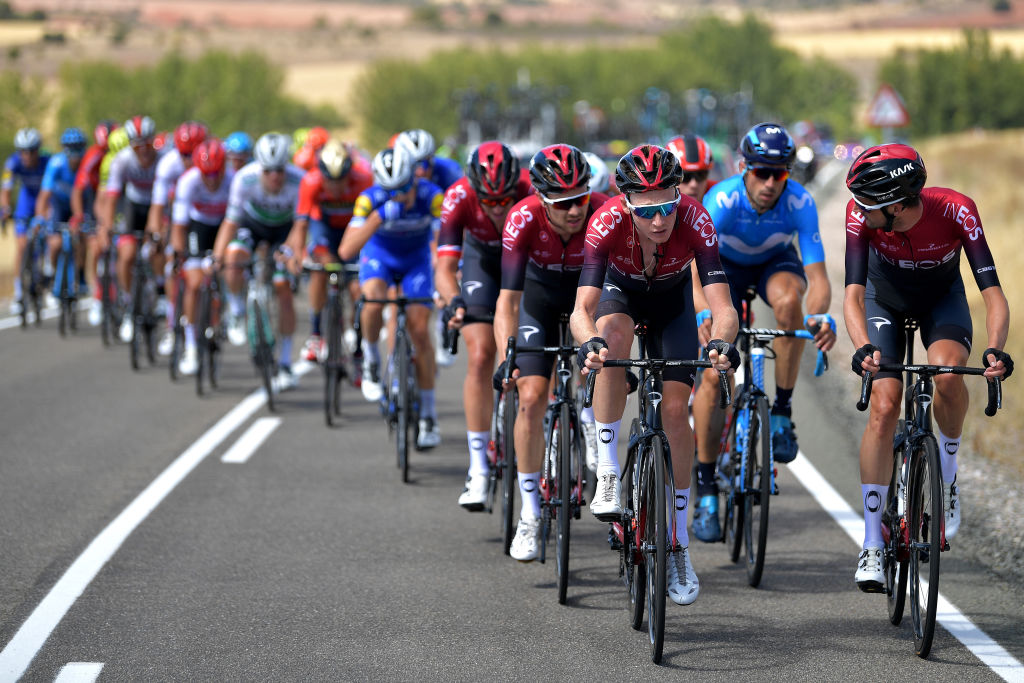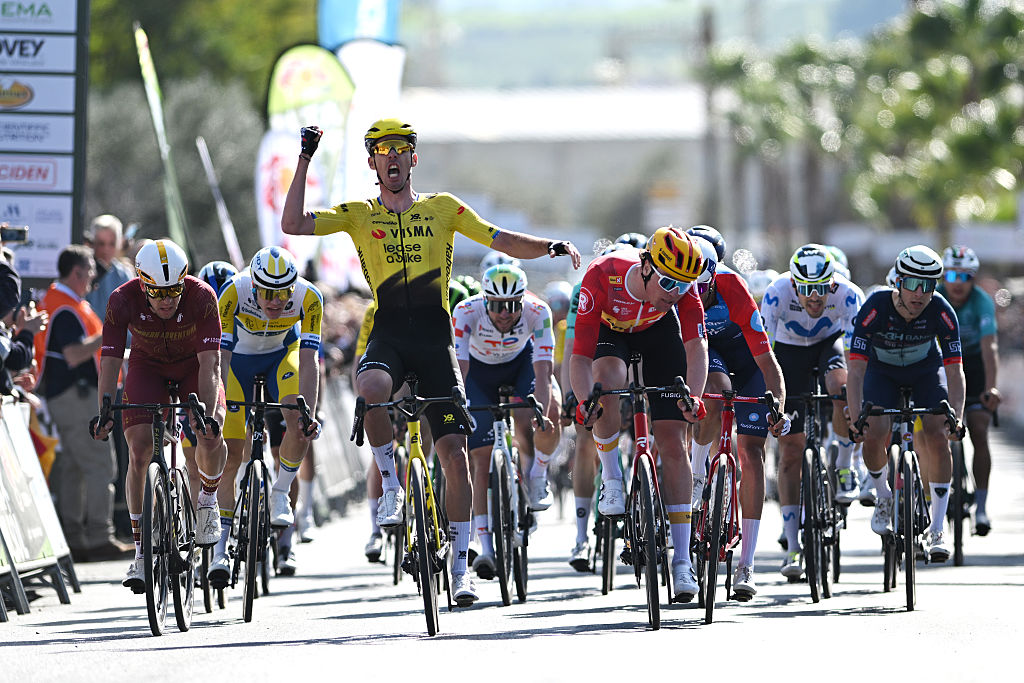Vuelta a España: Crosswind stage 17 'unlike any other'
Average speed of 50.628kph third fastest stage in Vuelta history

The latest race content, interviews, features, reviews and expert buying guides, direct to your inbox!
You are now subscribed
Your newsletter sign-up was successful
At the stage 17 finish in Guadalajara of this year's Vuelta a España, no matter the language spoken, rider after rider agreed that what they had experienced was one of the most exceptional stages of any Grand Tour.
Gusting winds blasting across the start in Aranda de Duero made it seem likely there could be echelon formations at some point. The whole stage was exposed and rolling, accumulating 2000m of climbing without a single classified ascent.
Nobody expected that after three kilometres the stage would erupt into a 40-rider breakaway and turn into a 216-kilometre chase all the way to the finish in Guadalajara.
The average speed of 50.626kph is the third fastest in the history of the Vuelta a España, with two stages, one of 55.276kph in 2001, and another of 51.566kph in 1963 even quicker. All three, however, are even faster than the quickest stage of the Tour de France at 50.4kph in 1999.
It was a day when Primož Roglič's lead hung by the thinnest of threads. Climber Nairo Quintana (Movistar) made up more time on his rivals than in all the previous mountains stages and moved into second place overall. And 40 riders effectively hijacked an entire Grand Tour and turned it into a kind of one-day Classic. The speed was only one of the multiple factors that made stage 17 of the 2019 Vuelta feel so different.
"Everyone knew it was going to happen, crosswinds from the start, big wide road, the first move went," said double Het Nieuwsblad winner and Paris-Roubaix podium finisher Ian Stannard (Team Ineos). He was part of the front group until the closing kilometres.
"Somebody got into the gutter, 30 guys went clear, and that was it. Day over," he said. "I'm pretty surprised Jumbo-Visma didn't get on it, but there we are."
The latest race content, interviews, features, reviews and expert buying guides, direct to your inbox!
The collaboration was unusually good for such a large group. Deceuninck-QuickStep's presence in numbers, with six riders out of a possible seven, helped make a difference.
So did Ineos with Stannard, Tao Geoghegan Hart, Wout Poels and Owain Doull, Movistar with four including Quintana, Team Sunweb with five, and Classics racers like Edvald Boasson Hagen (Team Dimension Data).
"A lot of the bigger guys were there, enjoying a flat day and a bit of wind," Stannard said. "You've got to commit in those conditions otherwise you're flapping around in the gutter, and it's a really hard day then.
"Everyone rode well then. Ineos wanted the stage, that's what it's all about now, I came a bit short in the final, but there we are."
A unique day
With ten Grand Tours to his name, Stannard said he had never experienced a day like the Vuelta's stage 17 in all his previous career, echoing what stage winner Philippe Gilbert had said.
"Qatar, you have some pretty hard days in a stage race, but not 220 kilometres. No time for a breather either - I'm pretty nailed now."
Doull also told a group of reporters that it had been a crazy day.
"It was a windy day, gusting up to 50kph and literally as the [race director's] car went [to start the stage – ed.] everyone sprinted for the car, it was straight in the gutter, and after two or three kilometres, there was maybe 40 or 50 of us in the front," Doull said.
"The gap was 15 seconds, 30, a minute, a minute and a half, and you think 'it's going away here', then we had five or six minutes.
"There were 40 of us at the start and 20 by the end; it was a solid day."
One of the key powerhouses in the move was Deceuninck-QuickStep's Tim Declercq, later singled out by stage winner Gilbert for praise for his tireless work in the 40-rider move.
"We said in the meeting if it was this windy, it's best to start from the gun, full gas," Declercq said. "Some teams thought it was way too early because it was 220 kilometres."
"But in the end it was a really, really hard stage that suited us the best and we had a textbook finish.
"It was a historical stage, a 220-kilometre time trial with all the GC guys bar one behind, I've never done one like that before," said Declercq's teammate and stage winner Philippe Gilbert.
However, the Belgian proudly pointed out that windy, flat, exposed days are the kinds of condition where Deceuninck-QuickStep excel.
"Echelons are in the DNA of this team," Gilbert said, "Qatar was the most specific stage race for windy days, and we always dominated that. In De Panne, too, we used the echelons to make up big differences, and I love doing that.
"It's good in cycling when it's not just strength that counts, but also technique. And that's what happened today."
Alasdair Fotheringham has been reporting on cycling since 1991. He has covered every Tour de France since 1992 bar one, as well as numerous other bike races of all shapes and sizes, ranging from the Olympic Games in 2008 to the now sadly defunct Subida a Urkiola hill climb in Spain. As well as working for Cyclingnews, he has also written for The Independent, The Guardian, ProCycling, The Express and Reuters.

